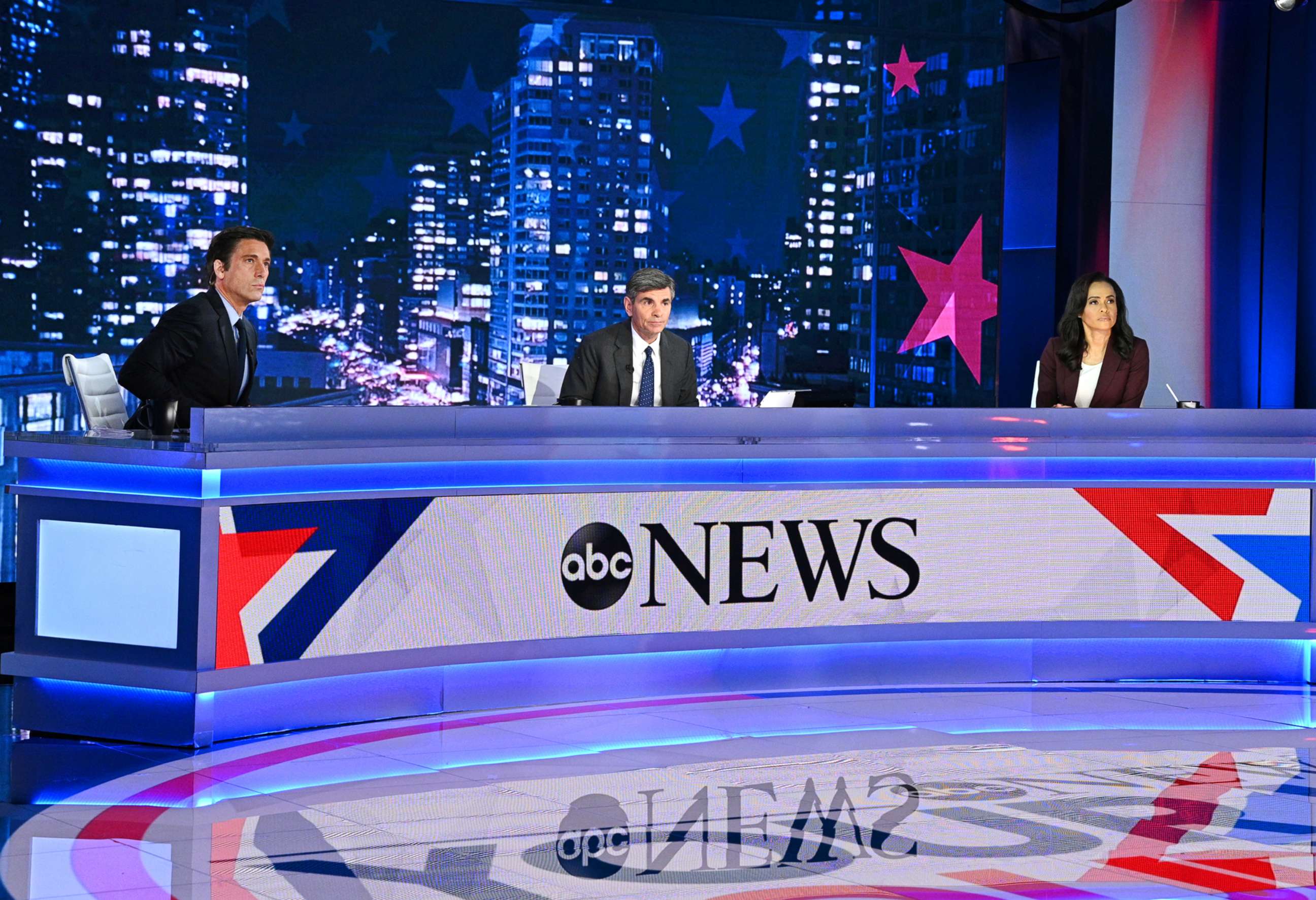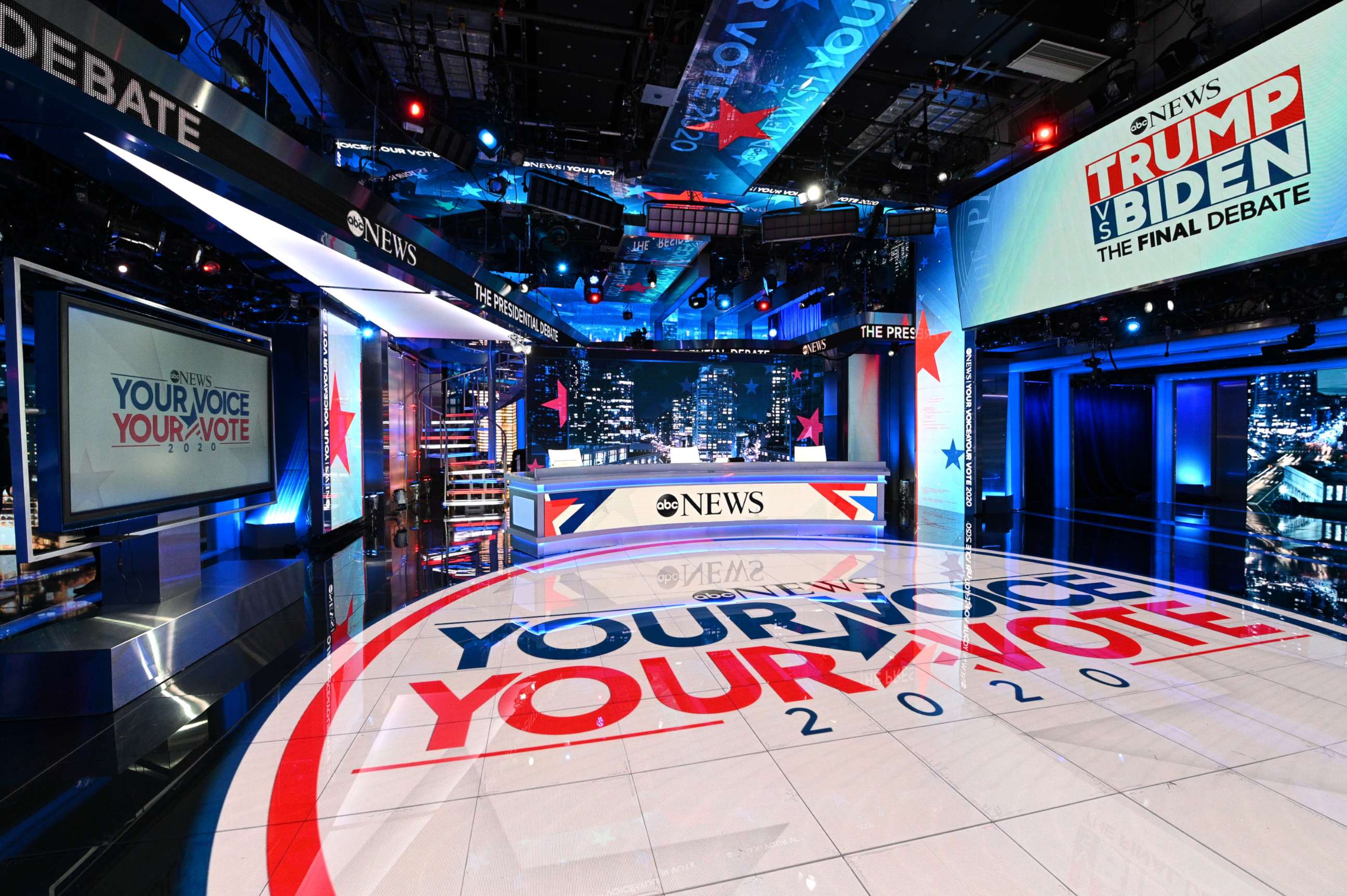ABC News chief on covering 2020 election day: 'Our audience is counting on us to get this right'
Those leading election night coverage describe how the results will be revealed
On election night in 2000, voters were told the crucial state of Florida had gone to one candidate. Then, they were told it actually went to another. Then again, they were told it was in fact too close to call.
Today, amid unprecedented concerns about reporting the election results in a timely manner, broadcast news networks are bracing for an extended period of uncertainty and trying to set expectations accordingly -- both for audiences and within their own offices.
“We have to get election night right,” James Goldston, president of ABC News, said in an interview with ABC’s daily podcast “Start Here.” “On the flip side of that, I think what the audience has to expect on that night... I would use two words: uncertainty and patience.”
Goldston described an election night broadcast that will look different because of COVID-19 concerns – with sparsely populated sets and analysts on the stage usually occupied by “The View” -- and one that will also likely play out differently because it will take time for mail-in ballots to be tallied.
“I'm actually super relaxed about it,” he said of delayed projections. “My overall message to the team, both to our decision desk and to everyone associated with our coverage on election night, is the only mistake we could really make is if we get this wrong.”
When asked whether networks will feel pressure to project a winner first or match competitors who declare a winner, Goldston insisted: “I truly, truly don't. … I wasn't in this country at the time, but that's how you end up with a situation like 2000 ... and I think that did meaningful harm to our entire industry.”
“It's not worth it,” he added.
Much of Goldston’s emphasis on patience stems from not only the 2000 race but the 2016 election as well. That year, Donald Trump pulled off a series of narrow wins in states where limited polls had shown an advantage for Hillary Clinton.
Goldston, though, said the surprise was based less on statistics and more on attitude. The Trump campaign, which had been trounced in primaries in Wisconsin and Ohio, was mired in unprecedented controversies and staffing upheavals heading all the way into election day.
“I think the media, in general, just found it hard to imagine a Trump presidency,” Goldston said. “I don't think this was especially a problem at ABC News. I think what was quite a general issue in media was there was this assumption that Hillary Clinton was going to win, even though the polls were showing that it was relatively close all the way along.”
While Trump has preemptively claimed this year, without evidence, that votes tabulated after election day could be fraudulent, the counting often proceeds well past election day and states have weeks to finalize results.
Broadcast executives acknowledge that a back-and-forth like 2000 could make a chaotic year even more problematic. So how will election night play out this year?

How the numbers arrive on election night
Despite news networks having their own style, reporting and projections, most major broadcasters actually receive the same results in real time.
“Starting in the morning, across the country, we are conducting exit polls,” said Dan Merkle, ABC's executive director of elections. “The exit poll is conducted for us by a company called Edison Research and they do the exit polling for us and CBS, CNN, NBC and a bunch of subscribing news organizations.”
As voting begins on Tuesday, Edison employees will be standing outside preselected polling places, asking voters a series of questions about who they voted for, their views on the issues and their demographic information.
Meanwhile, a handful of representatives from news organizations will maintain an “embargo room” to process the incoming exit poll results, and confirm the data are statistically sound before they are reported.
Starting at 5 p.m. Eastern Time, those preliminary exit poll results start flowing outside the “embargo room.” Each network analyzes the data, and decides whether a candidate’s lead in each state is enough to project a winner.
“If there's a large enough lead in the exit poll, we can project at poll closing time,” said Merkle. “[In] many states, we won't be able to do that.”
How and when state projections are made
When network anchors reveal projections, these decisions come from neither them nor any producers in the control room -- they come from each network’s “decision desk.”
“A decision desk, or ‘D-Desk’ for short, is a group of experienced social scientists, statisticians, election experts,” Merkle explained.
Some have been employees of ABC News throughout the years, while others come from independent universities and polling firms.
As polls begin to close, the news division begins publishing actual vote count tallies -- data also collected by Edison Research.
Merkle said that while sometimes exit polls, run through statistical models, can result in a projection of a state with zero percent of precincts reporting, most projections require analysis of actual vote data.
But this year, there’s an added wrinkle: Polling shows a clear partisan gap, in which Democrats are more likely to vote early, and Republicans are more likely to show up to the polls in person.
To get a more complete picture, Merkle said, Edison Research is also conducting polls of mail and early voters, using phone calls and in-person interviews.
In close races, the decision desk shifts away from exit polling entirely, and looks solely at the growing vote data.
“At that point,” Merkle said, “what we're looking for is do we have good representation [of votes from] across the state.”
When voting data and statistical modeling are deemed 99.5% certain, Merkle said, the decision desk will make a projection, and not before. In fact, the decision desk is kept on a separate floor from the broadcast team to remove any sense of undue pressure.
“We are in a separate location, and all we're doing is focusing on making these projections,” Merkle said. “The game plan is the same as it's always been ... follow the data where it leads us, and to get it right.”

How networks are prepping
Merkle said ABC’s decision desk has held multiple simulations and rehearsals, and that it’s constantly in touch with state governments to determine what election night could look like.
“Three of the key states that we're concerned with: Pennsylvania, Michigan and Wisconsin. These are states that are seeing huge increases in early voting and absentee voting,” Merkle said. “And specifically in Pennsylvania and Wisconsin, they will not even start processing the ballots till Election Day.”
States with more experience in absentee voting, like Florida and Texas, will likely be able to tally their results earlier, as will states like Colorado and Oregon, where votes are cast entirely by mail.
So what happens if days go by without a projected winner? Goldston said in that case, audiences could see big changes in programming to keep up with ever-shifting data.
“I mean, obviously, the interest level will be off the charts if this is a close election,” Goldston said. “And what we'll do is kind of something similar to what we did when the COVID crisis hit in March. Essentially all of our broadcast shows will kind of convert to being election shows.”
I think what we owe our audience in this moment is transparency about what we know and what we don't know,” he added. “Our audience is counting on us to get this right.”
This report was featured in a special bonus episode of “Start Here,” ABC News’ daily news podcast, posted on Sunday, Nov. 1, 2020.
"Start Here" offers a straightforward look at the day's top stories in 20 minutes. Listen for free every weekday on Apple Podcasts, Google Podcasts, Spotify, the ABC News app or wherever you get your podcasts.




